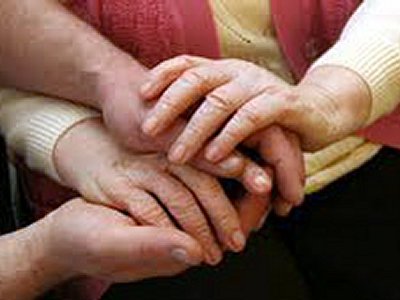
A GRIEF UNOBSERVED
The invisible community of the bereaved possesses truths about life we need to hear. How odd, and perhaps significant, that theirs are the very voices we tend to block out.
Some time ago I heard a media report on how we are going to live much longer, with the number of people over ninety years of age set to quadruple by 2050. Shortly after, I listened to another item about unhealthy lifestyles and how more people can expect to die younger through heart disease. Could they both be true? Possibly. One phenomenon is the number of older people (themselves the beneficiaries of healthy diets and good health care) who outlive their children (because we haven’t beaten cancer or heart disease). The blessings of living longer may be mixed.
The media focus on healthy lifestyles, welcome as it is, nevertheless exposes deep rooted fears over death. It seems to be a moral duty to stave it off as long as possible, yet those who manage this are shunned because their wrinkles and infirmities do not belong in our image-obsessed culture. A similar double-mindedness hurts bereaved people too. We express voluble sympathy for the victims of national or unusual tragedies but are sometimes less willing to engage with people closer to home.
The impact of bereavement is like a guillotine, cruelly chopping relationships in two. The loss is brutal, unsparing, irrevocable. There is no mountain bike to take us rapidly through the valley of the shadow of death. It is a path we must walk at a painstaking pace, enduring the unremitting emotional pain its terrain affords us. In Jesus’ day, lepers were society’s outcasts, avoided for fear of contamination. Today bereaved people can make a compelling claim to this status. Yet the wonderful thing about meeting bereaved people is how life-affirming their reflections turn out to be.
Our natural reserve keeps us from extolling others while they live but when they die a new spontaneity is sometimes found. Part of the role of clergy prior to a funeral is to listen to bereaved relatives describe the character of the deceased and it is striking how unblemished the praise usually is. A hard-bitten cynic might ask themselves why the world is in such a bad shape when those who leave it appear to be so blameless and perhaps it is worth addressing this question.
In late 2001, the New York Times commissioned a journalist to write short biographies of every person that was murdered in the city in the 9/11 attacks. As the work developed, she was struck by how uniformly glowing the relatives’ tributes proved and thus began to doubt their honesty. They couldn’t all have been that nice, surely? The conclusion she came to is surrounded by wisdom. These people weren’t faultless but the love which glued each relationship together overwhelmed the irritating faults and selfish preoccupations which they were prone to. Scripture says that ‘love covers a multitude of sins’ (1 Peter 4:8) and bereaved people tend to bear witness to this. Death may be forbidding, but its finality puts into perspective the mundane preoccupations of life. The invisible community of the bereaved possesses truths about life that we all need to hear. How odd, and perhaps significant, that theirs are the very voices we tend to block out.
We are defined spiritually by the depth and commitment of our relationships and so it may be worth asking ourselves the question: how would we like to be remembered? For giving out to others or by some other preferred standard? It may be hard to answer that question – not least because the world we live in is so noisy, rushed and distracted – but it is not impossible. The legacy which counts before God is relational. It may not be easy to measure, but it is felt more deeply by others than anything else we achieve in life.
POPULAR ARTICLES

Obama's Covert Wars
The use of drones is going to change warfare out of all recognition in the next decades.

Through A Glass Starkly
Images of traumatic incidents caught on mobile phone can be put to remarkable effect.

What Are British Values?
Is there a British identity and if so, what has shaped the values and institutions that form it?


